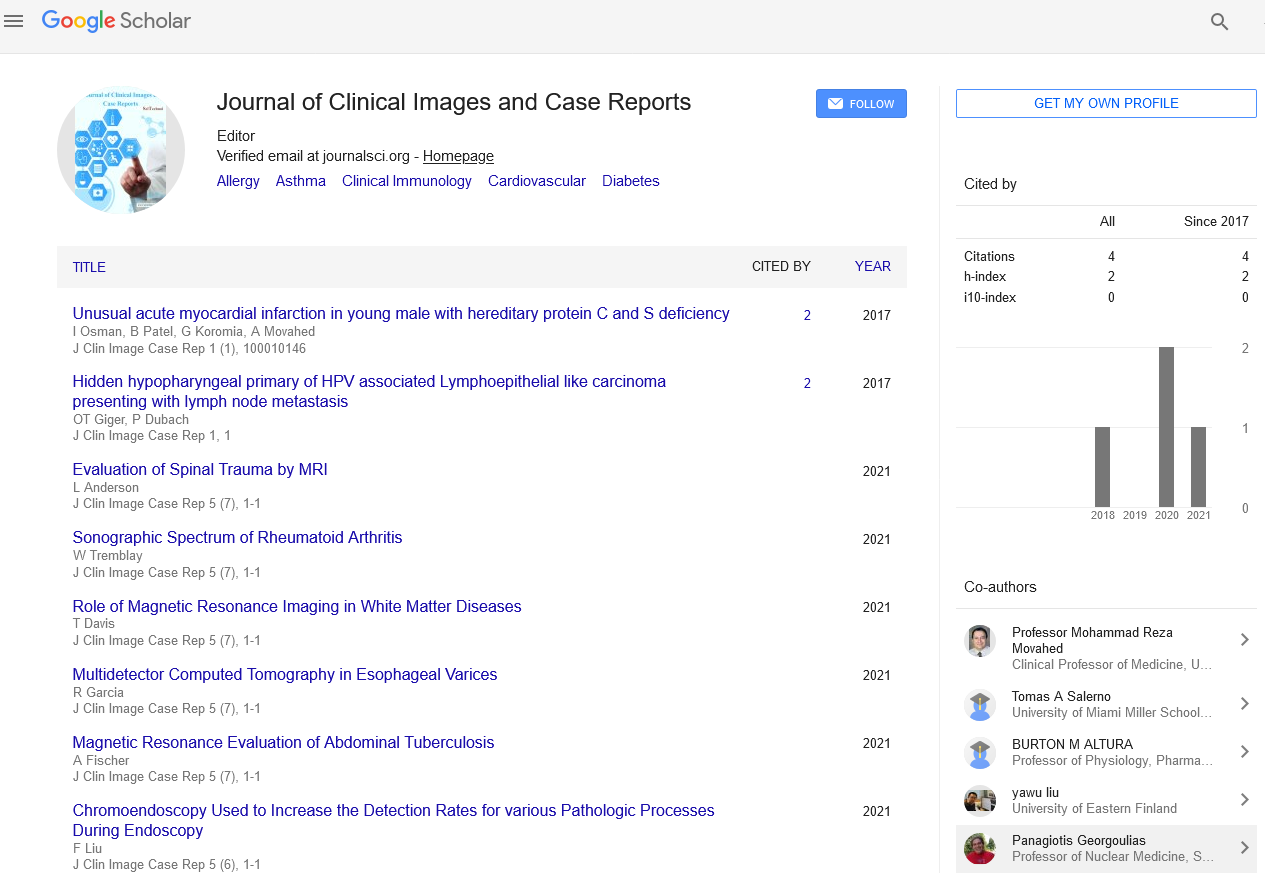Opinion Article, J Clin Image Case Rep Vol: 8 Issue: 5
Endocarditis and Its Cardiac Complications: Infection to Heart Failure
Matteo Andriani*
1Department of Cardiothoracic Surgery, Maastricht University, Maastricht, The Netherlands
*Corresponding Author: Matteo Andrian,
Department of Cardiothoracic Surgery,
Maastricht University, Maastricht, The Netherlands
E-mail: adrianimatteo@gmail.com
Received date: 25 September, 2024, Manuscript No. CICR-24-153591;
Editor assigned date: 27 September, 2024, PreQC No. CICR-24-153591 (PQ);
Reviewed date: 11 October, 2024, QC No. CICR-24-153591;
Revised date: 18 October, 2024, Manuscript No. CICR-24-153591 (R);
Published date: 25 October, 2024, DOI: 10.4172/CICR.1000327
Citation: Andriani M (2024) Endocarditis and Its Cardiac Complications: Infection to Heart Failure. J Clin Image Case Rep 8:5.
Description
Endocarditis is a serious infection of the inner lining of the heart, typically affecting the heart valves. It can be caused by bacteria, fungi, or other microorganisms that enter the bloodstream and attach to the heart tissue. This condition is often linked to pre-existing heart conditions but can also affect individuals with healthy hearts under certain circumstances. If left untreated, endocarditis can lead to severe complications, including heart failure, stroke and organ damage, making early detection and prompt treatment difficult.
Endocarditis usually occurs when bacteria or other pathogens from the bloodstream adhere to damaged areas of the heart valves or the heart lining. These microorganisms can enter the bloodstream through various means, including dental procedures, intravenous drug use, or infections elsewhere in the body. Individuals with predisposing factors, such as heart valve disease, artificial heart valves, or a history of heart surgery, are at a higher risk of developing endocarditis.
The most common bacteria responsible for endocarditis are Streptococcus and Staphylococcus species, although fungi and other organisms can also be involved. Once these pathogens infiltrate the heart, they form masses of bacteria or fungi known as "vegetations." These vegetations can damage the heart valves, disrupt blood flow and lead to the formation of blood clots, which can travel to other parts of the body, causing severe complications like stroke or kidney damage.
The primary complication of endocarditis is damage to the heart valves, which can result in heart failure. The infection can cause the heart valves to become inflamed and less effective at controlling blood flow, leading to regurgitation (the backflow of blood) or stenosis (narrowing of the valve). As a result, the heart must work harder to pump blood, which can eventually lead to heart failure. In some cases, the damage may be so severe that valve replacement surgery becomes necessary.
Another significant complication of endocarditis is the risk of embolism. Embolism occurs when pieces of the infected vegetation break off and travel through the bloodstream, potentially blocking blood vessels in vital organs. If an embolism reaches the brain, it can result in a stroke, which may lead to permanent neurological damage. Embolism can also cause damage to the kidneys, lungs, or spleen, depending on where the clots travel.
Diagnosing endocarditis typically involves a combination of clinical evaluation, blood cultures and imaging studies. Blood tests are used to identify the specific pathogen responsible for the infection, while echocardiography, often in the form of a transesophageal echocardiogram, is used to visualize the heart and detect the presence of vegetations on the heart valves. In some cases, a biopsy may be performed to confirm the diagnosis.
Endocarditis is a potentially life-threatening infection that can cause severe cardiac complications, including heart failure, stroke and organ damage. Early diagnosis and treatment are essential to prevent these complications and improve patient outcomes. While it is a serious condition, advances in medical treatment and surgical interventions have significantly improved the prognosis for individuals with endocarditis. As such, prompt medical attention is important for anyone suspected of having this infection, particularly individuals with pre-existing heart conditions or risk factors.
 Spanish
Spanish  Chinese
Chinese  Russian
Russian  German
German  French
French  Japanese
Japanese  Portuguese
Portuguese  Hindi
Hindi 